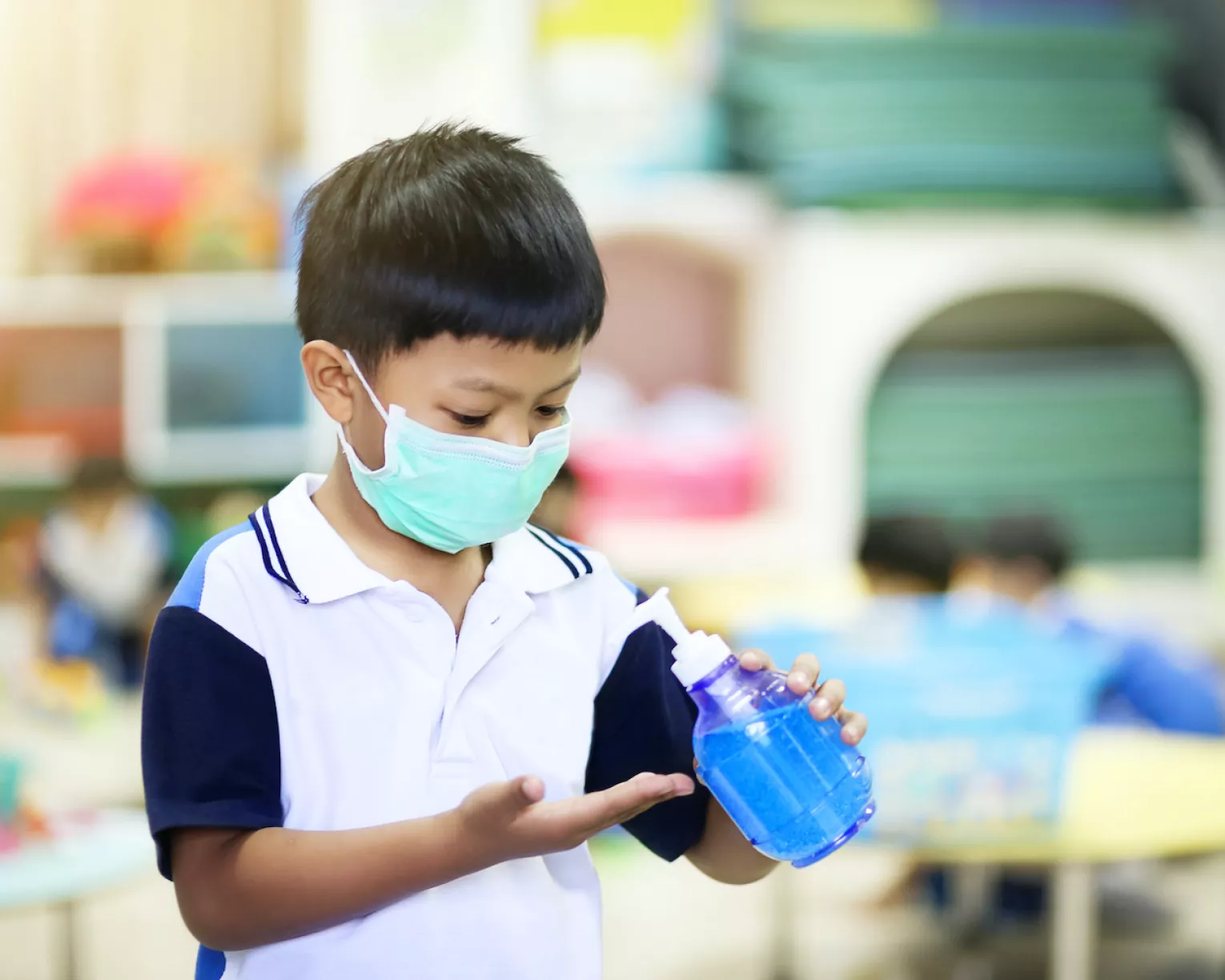Key Takeaways
- More than 20,000 students are under quarantine in Mississippi.
- There is no mask mandate for schools, but implementing a hybrid schedule was recently approved.
- Educators need help managing their stress as they try to keep students safe.
Returning to teach at an elementary school full of unvaccinated children is “different” says Jackson, Mississippi teacher Kenyatta Reed. “It’s very, very different.”
“Every day I’m worried,” she says. “Standing at the board, I feel my anxiety rising each day. I know the risks we’re taking.”
Reed, a fourth grade teacher and mother of two public school students, isn’t alone in her anxiety. Educators and parents alike are feeling uneasy about the surge in the Delta variant of the coronavirus in Mississippi and the impact it can have on their students, themselves, and their own children and families.
Hybrid Schedules Approved
Just last week, the Mississippi Department of Education announced that districts can implement a hybrid schedule due to the rising number of COVID cases in the state.
Reed is vaccinated and knows that two other colleagues who work on her hall are as well, but she’s not sure about the other five educators. Asking about vaccination status is a politically charged exercise, particularly in the state with the lowest vaccination rate in the country where the governor has not mandated masks in schools.
Reed teaches at Lester Elementary School in Jackson, Mississippi, where so far one class has had to quarantine since the school opened two weeks ago. Across the state, more than 4,500 students have tested positive for COVID-19 and more than 20,000 are under quarantine. Just after schools opened for the 2021-2022 year, a 13-year-old eighth grader died after testing positive.
In addition, nearly 1,000 teachers or staffers tested positive, according to state data.
"These are dramatic numbers," Dr. Paul Byers, the state epidemiologist said during recent call with state pediatricians. "We are clearly at the worst part of the pandemic that we've seen throughout, and it's continuing to worsen."
Educator Anxiety Rises with Cases
Reed says the students seem to be coping well, though some come to school wearing two masks and are careful to keep their distance. Others need reminders not to share pencils or crayons and to respect each other’s space.
But though students seem to be adjusting, their educators are dealing with a lot of anxiety.

“This isn’t normal, it may be our new normal, but none of it feels normal,” Reed says. “We need to be vigilant about keeping the students safe from the virus, which on top of the normal workload of educating them, is a lot.”
At home, anxiety is also high. All of her family members are out of the house at school or at work. Her daughter is in high school and has been vaccinated, her son is in elementary school and has not. When they get back home, they take off their clothes and take showers.
“There’s no just coming home anymore,” Reed says.
Emotions All Over the Place
At her elementary school, everyone is paying close attention to the social and emotional wellbeing of the students, but she says educators need a way to manage their stress.
“We have gloves, masks, Lysol, whatever PPE we need, my school has, but our emotions are all over the place,” Reed says.
She’s grateful that her colleagues and her principal have been very good about checking in with each other, and the Mississippi Association of Educators has webinars on managing stress and sent out an email about professional development on social and emotional learning for educators.
She’s also fortunate to have a colleague she can rely on to take over her class for a few minutes when she needs a breather. It’s one thing to take your mask down when students go to specials, but it’s another altogether to get a breather when you need a minute to collect yourself in the middle of class.
“I think we all need to know we have a partner in the building who has your back, who you know is going through this with you, that mentally, you have each other,” Reed says.
Whether or not she feels being back in person is the best option, Reed says it depends on the day. She was thrilled to be back at first, but as the surge picked up, so did her concerns. She’s hopeful that the FDA approval of the Pfizer vaccine will prompt more unvaccinated to get their shots and that a vaccine for her students and her son are not far off.
“Right now, we’re caught in between,” she says.



